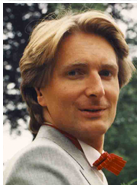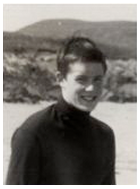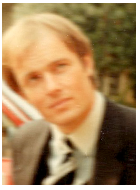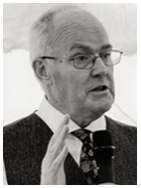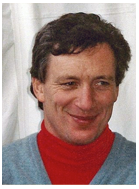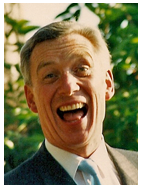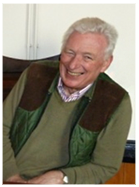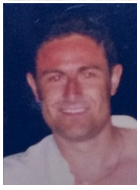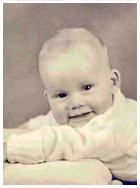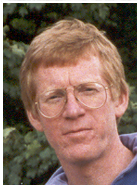Who We Are
Nick Kell
Facilitator & FourSight Team
David Cousin
FourSight Team
Robin Barker
FourSight Team
Pearl Oseki
FourSight Team
Robin Richardson
FourSight Team
Ted Shaw
FourSight Team Strategic Advisor
Grant Davies
Coach
Tatiana Gniffke
Coach
Bill Dunlop
Partner
Who we have Worked With




















What They Say
Read some of our testimonials to see exactly
what we can do for you.
Click on a particular name to read more…
David cousin
45 years as an IT professional, now beginning to wonder if he’s left it too late to make his long planned move and become a Greek-island-hopping-poet. Probability = .95
WORK HISTORY
Compass/ISG – Consultant
| Railtrack | Technical Services Manager |
| Whitbread | Data Centre Manager |
| Mobil | Computer Programmer |
| Shell | Computer Operator |
‘The result was that the team ensured that everyone survived intact . . . ‘
The first piece of work I did with Nick, although I knew him beforehand, was during a time when data centres were being closed and consolidated. The staff in the data centre concerned had begun to fracture from the strong team base they had constructed, as people began to focus on their own wellbeing. Nick and his colleague came in and built a team event that focussed the team back onto concern for each other, brought out some issues within the team and injected a lot of fun. The result was that the team ensured that everyone survived intact, secured alternative positions within the company and supported each other through a potentially difficult time.
A later piece of work, with a different company, involved developing customer care skills within the distributed IT teams. It is worth adding that the teams had been poorly-funded and poorly-trained up to that point and, as a consequence, had highly-developed defensive skills which were frequently used. Nick and his colleague developed an incremental series of events that developed the teams’ customer care skills over time, in conjunction with high-quality technical skills development. The point was not for it to be a one-off customer care day and on we go, but rather that it was a supported process that reiterated learning over a long period. Perhaps, without going on too much here, I should conclude by saying that I later met a professor of IT from a prestigious university, who didn’t know my background, who said ‘It was really strange in there amongst all the chaos, but the IT teams had highly-developed people skills. I wonder where that came from’, and that was over five years later!
The behavioural approach is useful because it is practical. People have to confront themselves, weaknesses and all, which probably sounds terrifying. But in reality it’s the only way to change something for the better, and it’s supportive when the terrifying bits do crop up. I should say that I have no divine right to say what better is, but teams can decide and Nick facilitates that.
Why would I recommend Dropping the Pilot?
Because it’s not a tick in the box, it’s much more than that. It changes people, it’s enjoyable and personal and it puts what they do at work into a wider frame.
Bill Dunlop
A lifelong credit & collection professional, Bill is as interested in individual development as he is in improving technical skills.
WORK HISTORY
Tower Associates – MD
| Digital/Compaq/HP | EMEA Credit Manager |
| Grand Metropolitan | Credit Manager |
| Hawker Siddeley | Credit Manager |
| GM | Credit & Collection Clerk |
‘For the 90% of people who made significant, reasoned changes there were very long-lasting benefits.’
What was the practical usefulness of work you’ve done with Nick and Grant?
I managed 160 people across EMEA for Digital/Compaq/HP and had a considerable investment in technical training. Over time I became aware of the need for high-quality behavioural training to ensure we got full value from people who had completed their technical training. Behavioural work which Nick and Grant delivered always provided an accelerator to all other training, particularly in relation to Leadership, Communication and Teamwork. Improvements in performance were noticeable immediately.
What specific examples spring to mind? Particularly those where results exceeded your initial expectations?
My expectations were exceeded right from the word Go! At a conference of Credit and Collection Managers, six months after we had started working with them, it was blindingly-obvious that those who had done behavioural training were already operating very differently. I realised I didn’t really know what was going on, booked myself on a course and became involved with delivery and follow-up. The on-going use of rounds has featured with almost all organisations after the training.
Describe changes which were of particular benefit to you and your organisation?
All my people began to think more carefully about what they were doing, how they were doing it and, most importantly, about their impact on others. They were more measured in their approach to work and solving problems. It was noticeable that they gave more attention to all kinds of planning.
Was there a lasting benefit? Can you give examples.
For the 90% of people who made significant, reasoned changes there were very long-lasting benefits. For the 5% of people who made life-changes it was clearly very important, dramatic and permanent. For the remaining 5% who didn’t change at all, clearly the only thing that was lasting was the knowledge of the need for change and that options were available.
Why was the behavioural approach useful?
It’s real. It shows people how they are: what’s working and what isn’t. That’s quite difficult. It takes a big person to admit they’re wrong. By focusing first on understanding yourself it equips you better to deal with others. Apart from anything else, it was developing all aspects of peoples’ lives, not just their work.
What kind of work have you done with Dropping the Pilot?
Why would you recommend Dropping the Pilot?
Malcolm Dunn
After a life-long professional career in Insolvency, the last 25 years in management, I strongly believe that employees are the most valuable resource. I also believe that a manager’s primary role should be facilitating the development of each person they manage, and doing this by improving his/her own self-development.
WORK HISTORY
| 1986 Assistant Official Receiver, Northampton | |
| 1990 Official Receiver, Southend-on-Sea | |
| 2001 Head of Regulation of Insolvency Practitioners, London and Birmingham (specific project) | |
| 2004 – 2013 Official Receiver, Northampton . |
‘I felt vitalised and encouraged in my view of the value of people.’
What was the practical usefulness of work you’ve done with Nick/Grant?
I had management responsibility from 1986 and attended many training courses over the years. I found Nick’s approach to training refreshing, relevant and I took home practical ideas and a fresh perspective. From previous courses (i.e. not run by Nick) I took home handouts of a ‘one idea fits all’ type, that were just filed and forgotten. Nick highlights the individual and I took home developmental ideas particular to me that I could use to improve what I was already doing.
What specific examples spring to mind? Particularly those where results exceeded your initial expectations?
For a start, it wasn’t boring. Nick brought relevance in what he was doing to my specific role and circumstances. He also did not allow any attendees, even seasoned campaigners, to bask in complacency but opened eyes to the impact of their attitude and behaviour.
Describe changes which were of particular benefit to you and your organisation?
I felt vitalised and encouraged in my view of the value of people. My organisation is one that tends to motivate by objectives and I learned much about marrying this with a more organic motivation. People-orientated management can only be achieved by people who are true to themselves. One thing I remember in particular was ‘you are not responsible for how others feel’.
Was there a lasting benefit? Can you give examples.
There was a significant level of promotion from my offices in part because we achieved or exceeded targets by encouraging people to do their best. This also resulted in a few positively changing careers (by choice) as their personal development took them down a different road.
It helped me to not only consider my approach but started a journey of self development and improved inter-action with the people with whom I worked.
Why was the behavioural approach useful?
You have to be honest with yourself before you can be believable to others. As Nick put it, you have to be interested to be interesting.
What kind of work have you done with Dropping the Pilot?
Nick and I have discussed the background and benefits of M3M over a bottle of wine.
Why would you recommend Dropping the Pilot?
The wine was really good (I bought it) and the course is, in my view, essential for any manager who is serious about their role and genuinely wants to be the best they can for their staff. Management is about responsibility, not power.
John Holland
After a life-long professional career in Insolvency, the last 25 years in management, I strongly believe that employees are the most valuable resource. I also believe that a manager’s primary role should be facilitating the development of each person they manage, and doing this by improving his/her own self-development.
WORK HISTORY
| Hewlett Packard | Lean Six Sigma Master Black Belt & Quality Consultant |
| Hewlett Packard | Organisation Development Consultant |
| Compaq | Organisation Development Consultant |
| Digital Equipment Corp. | Organisation Development Consultant |
| Digital Equipment Corp. | Regional HR Manager |
| Digital Equipment Corp. | District HR Manager |
| Standard Telephones & Cables | Personnel Manager |
| Standard Telephones & Cables | Personnel & Training Officer |
| Marley Tiles | Management Accountant |
What was the practical usefulness of work you’ve done with Nick/Grant?
Primarily it was intended for people who wanted to learn more about themselves, how others perceived them and how to change ineffective behaviour into effective behaviour.
The programme was delivered many times over several years in Compaq EMEA and then Hewlett Packard EMEA and, from the first, was over-subscribed and always attracted a healthy waiting list.
The real strength and USP of the design was that it focused entirely on raising individual’s awareness of their behaviour and its impact on others. This was achieved by each participant receiving detailed, specific behavioural feedback on managed tasks from other participants and from the facilitators.
The ensuing insights were then translated into practical behavioural development plans to help individuals make the changes they had realised they had to make if they were to become effective/more effective. There was very little theoretical input, just sufficient to enhance understanding.
Describe changes which were of particular benefit to you and your organisation?
I participated in the programme principally to evaluate its appropriateness for Compaq’s development curriculum. From a a personal perspective, learning how other people see me, react to me and the insight I gained into the impact I have on them was profound and unique. I can still recall many of the experiences in vivid detail and it was unquestionably the development experience with the most impact of my career . . . and this at the age of 44!
I am aware that the individuals privileged to participate in the programme felt the same way and were able to be far more effective in their roles at work, and in their lives generally . . . by some margin.
Was there a lasting benefit? Can you give examples.
I have seen individuals experience life-changing insight – this has clearly stayed with them for a long time, usually as a foundation which underpins the future. There were many examples of participants who demonstrated dramatic improvements in their work performance and consequently gained rapid promotion which they attributed solely to their participation in this programme. We also had individuals who transformed their personal lives, for example, resurrecting failing personal relationships.
Why was the behavioural approach useful?
Open and honest, structured and specific feedback, from peers as well as from the facilitators, based on real, observed behaviour in almost-real time often came as a surprise, even to very grounded individuals. This has a profound impact. Structured reviews and time for personal reflection made the lessons learnt go very deep. It really does enable people to learn how to adapt their behaviour in order to operate far more effectively with others, both in their work and personal lives.
What kind of work have you done with Dropping the Pilot?
Many, many workshops, programmes, courses and assessment centres designed to develop the necessary skills to enhance and drive personal effectiveness; open to all levels in the organisation from Personal Assistants to Directors.
Why would you recommend Dropping the Pilot?
The consistently-high standard of design, delivery and interventions and the life-changing impact experienced by participants. Their programmes really do make a difference.
Verbatim comments from two participants
‘While attending the course I was forced into clearing some of the mist from my mirror – thereby allowing me to get a glimpse of how other people experienced my behaviour. I was not surprised to see that I was not the most effective human being.
The benefits to me, and therefore also to the company, are an increased awareness of aspects of my behaviour which impact negatively on my, and my team’s, ability to work efficiently; and also feedback on positive aspects of my behaviour which I can make use of.’
‘I want it on the record that I think that this course is one of the best, if not the best, that I have been on.
It is practical, helpful and even though, at times, it may be upsetting or ‘shocking’ it is amazing how the feedback can help you change . . . change something that may be very small but that would make such a difference to how you work in a group environment.
Pearl Oseki
Freelance IT Change Professional
WORK HISTORY
| HSBC plc | Consultant Business Analyst |
| Lloyds Banking Group | Lead Business Analyst |
| Fujitsu Services Limited | Solution & Business Consultant |
| Trustnet Limited/Financial Express | IT Manager |
| Railtrack | Helpdesk Analyst/IT Support Specialist |
What was the practical usefulness of work you’ve done with Dropping the Pilot?
I consider myself very lucky to have had two very insightful managers in my first job in IT.
They introduced the whole newly-formed team to Nick Kell and sent us all on a behavioural Customer Service programme, we completely bonded as people before we started working together.
This understanding of your team members’ strengths and weaknesses meant we functioned as a cohesive team with the same goals.
Describe changes which were of particular benefit to you and your organisation?
The awareness that you are the first contact a Customer has with IT, and that their experience, good or bad, is down to how you deal with them, is very powerful.
Learning to take ownership for every call assigned to me, from start to finish, was a good behaviour to develop so early in my career and has served me very well ever since.
Was there a lasting benefit? Can you give examples.
It’s been very useful in my career as consultant: I never try to make a good impression by promising something I cannot deliver; better to overestimate how long it will take to do something than underestimate and disappoint the customer.
I always set expectations by keeping the customer informed if there is a change to what I promised; it sounds like a small thing but I have found it has made, and continues to make, a world of difference to my clients.
Why was the behavioural approach useful?
It forced me to take responsibility and ownership of issues.
It made me learn to actively listen to my customers and colleagues.
It has resulted in my always questioning why I am doing something – very useful in today’s work environment with so many demands on my time.
What kind of work have you done with Dropping the Pilot?
A series of behavioural Customer Service training programmes.
Why would you recommend Dropping the Pilot?
It works! And it sticks! I did my training with them over 15 years ago and I still use those skills today and impart them to my team members.
